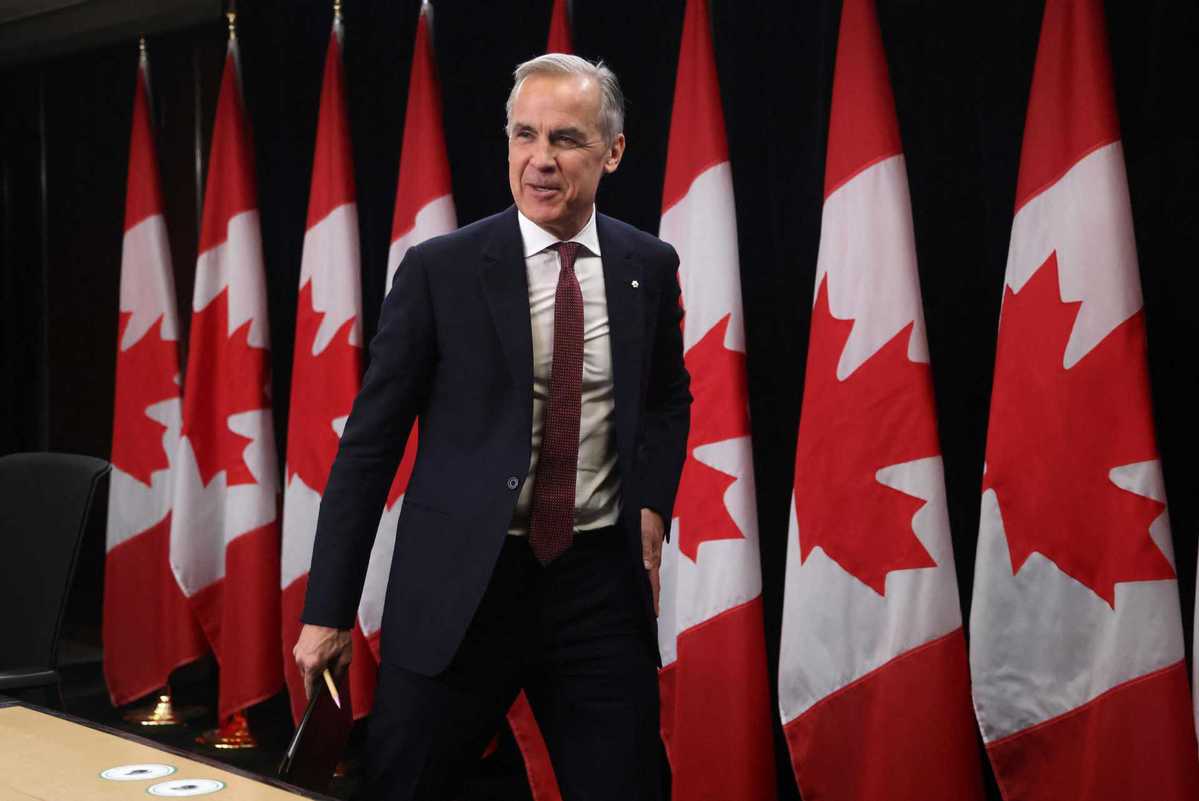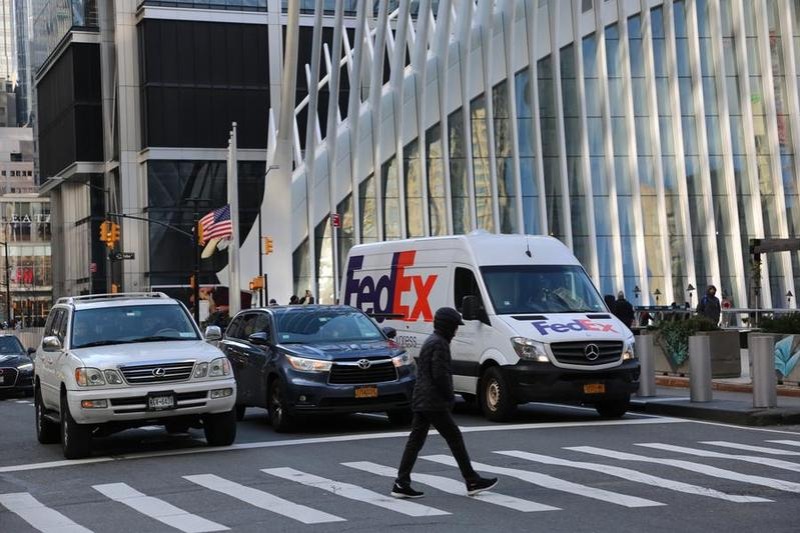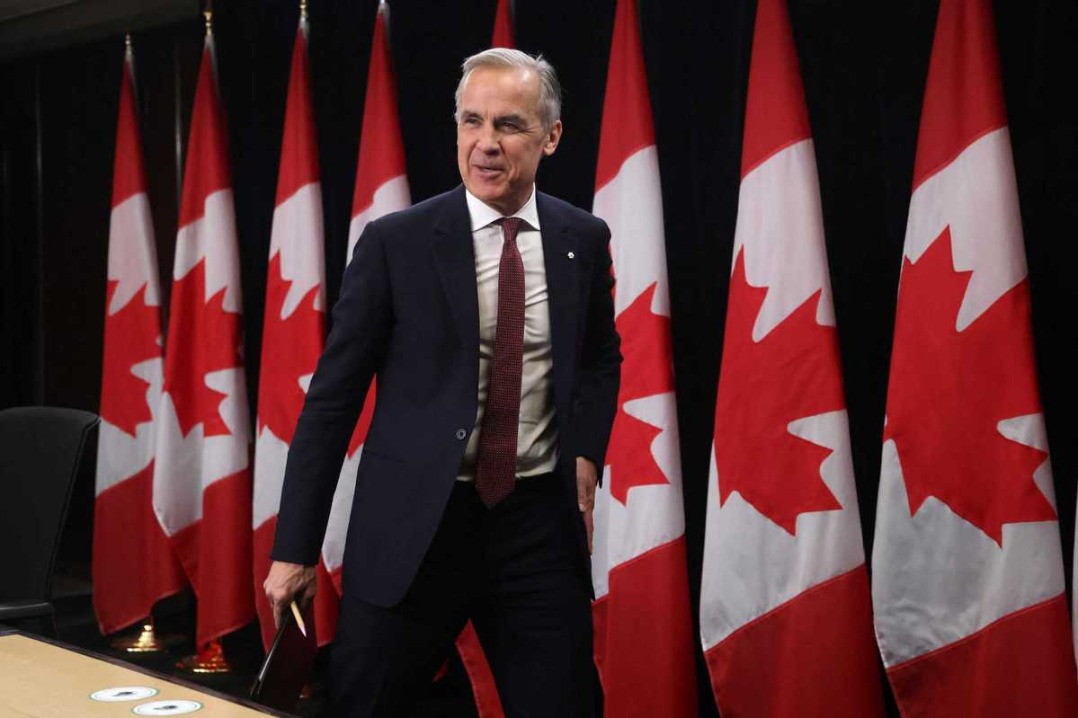Canadians reject annexation talk, rally behind new PM


Canadians seemed to support Prime Minister Mark Carney pushing back against US President Donald Trump's suggestion that Canada could become America's 51st state.
"I think Carney was doing a great job. He didn't back down to Trump, right? He stood up for most Canadians, and that's why we voted for him," said Jack Colin, 43, a Toronto resident.
"Most Canadian people don't want to join the US; I don't get why this keeps coming up," he told China Daily.
"Carney seems like he can keep things steady, and done a good job on the economy before, so I'm really curious to see what he does next," he said.
Ray, a Toronto resident who declined to provide his last name, said, "This meeting was a good start, but who knows what's coming next, especially when you're dealing with Trump, and he changes his mind every other day.
"The fact is he didn't cancel the tariffs, so this was more of a friendly get-together. The real negotiations are still ahead; I think it could be tough," he told China Daily.
"It appears to have been successful in terms of having met the expectations that the new prime minister set out," said Adam Chapnick, professor of defence studies at the Royal Military College of Canada.
"Carney indicated that the goal was to open a conversation with the White House, and he appears to have done that," Chapnick told China Daily.
During the meeting on May 6, Carney said that Canada "will never be for sale", a statement widely interpreted as a rebuke to Trump's past remarks suggesting a hypothetical US annexation.
"Respectfully, Canadians' view on this is not going to change," Carney said.
"This point had to be made clear to Washington, and it was," Chapnick said.
"The new US ambassador to Canada has since indicated that the issue of Canada becoming the 51st state is now over. As the president says, it takes two to tango on that issue, and Canada is not interested," he said.
The Trump administration has not signaled any intention to roll back tariffs on Canadian imports, and Chapnick said the president's objectives are not entirely clear.
"He wants lower prices for American consumers and for American consumers to buy exclusively American.
"Those two objectives are fundamentally incompatible because some goods and services can be more efficiently produced either abroad or in conjunction with other states," he said.
He said that "the Carney government will indeed continue to negotiate to end the tariffs and restore the much healthier economic relationship that was framed by CUSMA."
According to a readout of the meeting, President Trump raised CUSMA, the Canada-United States-Mexico Agreement, bringing the trade pact back into bilateral discussions.
"Canada benefits most from a relationship with the United States based upon clear and mutually agreed upon rules. For now, CUSMA is that sort of basis," Chapnick said.
But as for potential amendments, "It is too soon to know what exactly Canada will be looking for in a renegotiated CUSMA," he said.
Canada has been "over reliant on the US for too long", and wants to forge closer ties with the UK and the EU, Canadian Foreign Minister Melanie Joly said.
"We are the most European of all non-European countries," she told the BBC on May 7. "That's why we want to be closer to Europe."
Chapnick suggested such a pivot is possible, but with limits. "I expect that Canada will pursue closer cooperation with all sorts of international partners, but it will be up to the Canadian private sector to determine which ones.
"The prime minister and his government can open doors, but Canadian businesses must walk through them," he said.
Carney also described the meeting as "the end of the beginning of a process" to redefine the US-Canada relationship.
"These two countries do still work together and will continue to do so on a variety of levels. This is not a symbolic statement," Chapnick said.
As Carney navigates his early days in office, Chapnick said he believes the prime minister is setting a tone of engagement but must also show resolve in defending Canadian economic interests.
"The conversation has started," he said. "The question now is where it will go next."

































